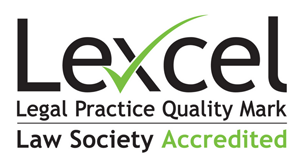Yesterday we held our annual Vision Day! The whole firm got together to discuss our vision for the next 12 months. Our theme was ‘Strength’ with sessions around strengthening our team, collaborations, relationships and most importantly, our care...
What is a Trust?
A Trust is a relationship between 3 people. Firstly, the person who creates the Trust (called the Settlor). Secondly, the person the Settlor appoints to ensure their wishes are carried out (called the Trustee) and thirdly, the person who benefits from the Trust (called the Beneficiary).
Trusts can be created by Will, in which case they only come into force on that person’s death, or they can be created during a person’s lifetime.
Trusts Created by a Will
Trusts are often created by a Will for many different reasons. Some parents wish their children to inherit money when they attain a certain age or a property trust can be created to allow a life interest or specific use of a property.
Other examples include disabled trusts, which can also be set up during the lifetime of a parent for their disabled child. These types of Trusts can also be referred to as ‘vulnerable beneficiary trusts’ and can receive special tax treatment from HMRC. See the Government website regarding the tax treatment of a Disabled Trust.
Discretionary Trust
Another form of a Trust is one called a Discretionary Trust. This is where the trustee of the Discretionary Trust decides how to deal with the Trust Fund for the beneficiary or a number of beneficiaries. The person setting up the Discretionary Trust – called the Settlor – creates the Trust either under the terms of their Will or during their lifetime. A Settlor usually sets out how the Trustee is to act by preparing a Letter of Wishes, although the Trustee has the discretion as to how to act.
Benefits of a Discretionary Trust
A Discretionary Trust has many uses such as protection a beneficiary’s funds if they are financially unstable; to save tax; to protect the benefits of a beneficiary who is disabled or to safeguard funds from a beneficiary going through a matrimonial settlement.
What do Trustees have to do?
Trustees who have been appointed by a Will have the legal responsibility of administering the Trust for the beneficiaries. We can advise a Trustee as to their role and duties and what they can and cannot do. We also have professional contacts who we can recommend for financial advice or help with dealing with tax issues.
Retirement of Trustees
We also provide advice for Trustees who are considering retiring and what the process is to appoint a new Trustee in their place.
Nowell Meller Acting as Professional Trustee
Nowell Meller Solicitors can act as Professional Trustee for clients who wish to appoint us. A Professional Trustee has no interest in the assets of the Trust. They are not benefitting from the Trust and they are not entitled to take any share of it. Therefore, they are completely independent and able to act in a legal and professional way for the Settlor on behalf of the beneficiary. Holding a position as professional Trustee, is not something Nowell Meller Solicitors take lightly and this is something we discuss with our clients at the time of making their Will.
To discuss who would be the best persons for you to appoint as your Trustees and the different options available please call our Trusts team on 01785 252377 for Stafford, 01782 987551 for Newcastle-under-Lyme, or 01270 446260 for Alsager.



